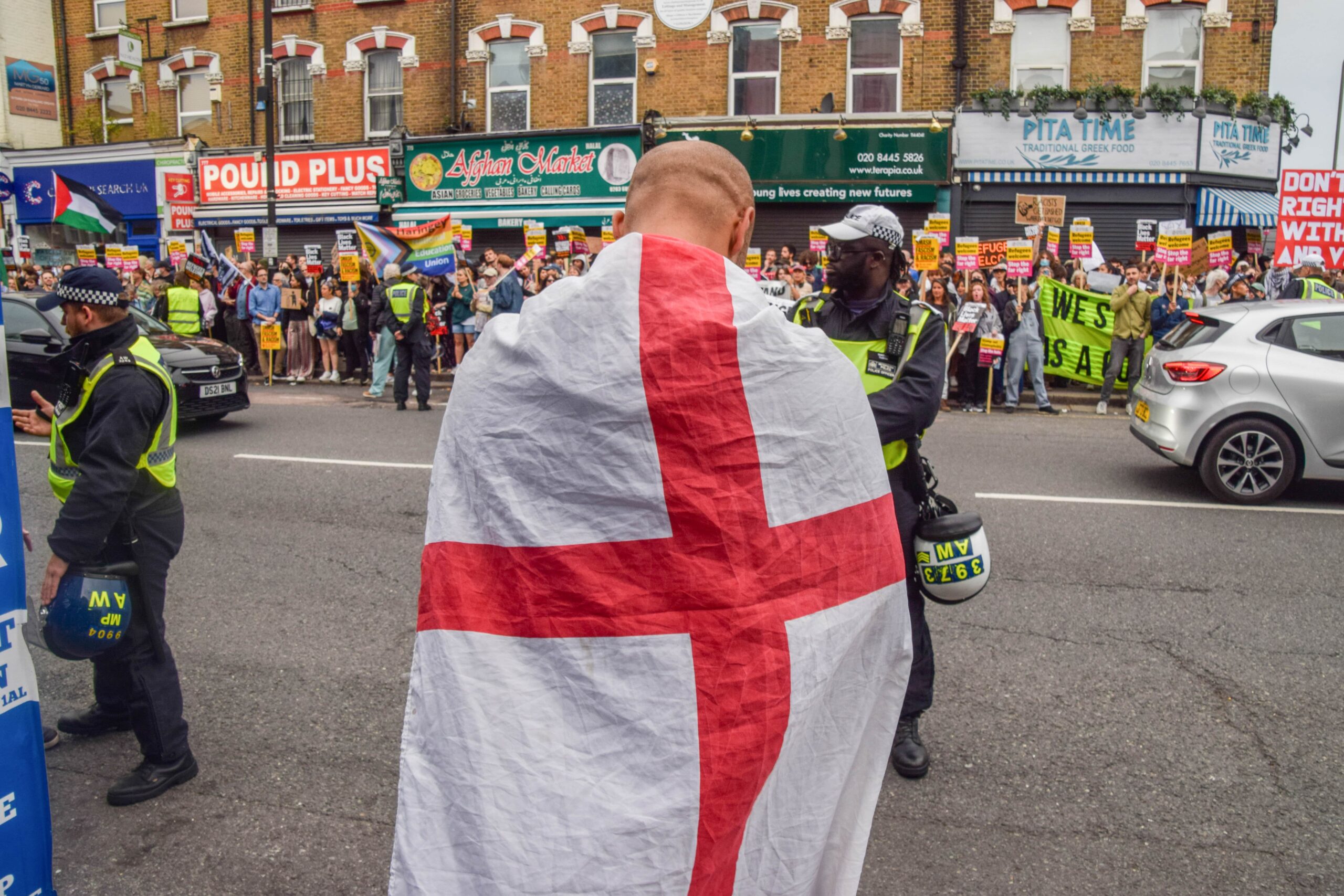‘I’m Afraid to Work’: 85% of Uber Drivers Say They Fear More Race Riots This Summer
‘I was an easy target.’
by Polly Smythe
10 June 2025

No ads, no distractions – just quality journalism. Our supporters make this possible. Join them today and give one hour’s wage per month to back independent media.
The vast majority of private-hire drivers fear a repeat of the outbreak of racist rioting last year, according to a new survey.
A poll of around 400 ride-hailing drivers conducted by the GMB trade union found that nearly half of private-hire drivers were hit by the racist disorder. The survey returned stories of drivers being threatened with knives and machetes, having stones thrown at their cars and being racially abused by passengers during last summer’s far-right violence.
Drivers told of how they temporarily removed their private-hire driver license plates to prevent their cars from being damaged, had their vehicles scratched, and had coffee thrown over their cars.
85% of those surveyed feared that similar race riots would break out on the streets of the UK again this summer, with four out of five drivers worrying that future acts of violence would impact their livelihoods, and 77% worrying it would impact their families.
GMB national officer Eamon O’Hearn said the “terrifying” results showed that “private hire drivers were on the frontline of last year’s riots.” He added that a “terrifyingly huge majority fear they may happen again this summer”.
“When it comes to health, wealth and opportunity, the UK is already an island of strangers. We cannot continue to tolerate divisions that come from being a hugely unequal society. Class is what is driving people apart, not race or ethnicity.”
One driver working in Rotherham and Sheffield – areas where anti-immigration protests took place – said that the “general feel from the public was threatening and intimidating, particularly in the youth in their 20s and middle aged men.”
“Picked up a race rioter and he was extremely inappropriate racially, verbally, psychologically,” said another driver. “Just heartbreaking to witness humanity at its worst.”
“Some young lads hurled stones and abuse at my vehicle whilst I was working in the Rotherham area,” said a different driver. “I went straight home after completing that job.”
“It was [a] scary environment,” said another. “You were under constant threat of being attacked and even killed.”
One driver reported that it was a “scary time to be a taxi driver. Afraid to work.”
Another driver reported being called out for delivery to an address “directly across from a hotel [being] targeted by idiots.” To reach the house, he had to go through “two police check points, a line of horses, and a line of police in riot gear,” only to deliver “a couple of bottles of wine.”
Many of those surveyed reported being too afraid to work while the disorder continued. One driver, who resorted to carrying a baseball bat for his own protection, said he did “not feel safe in the United Kingdom anymore.”
“I felt insecure due to my ethnicity and I felt like I was an easy target,” said another driver. “Even after the riot the hostility was still there.”
However, if drivers chose not to work in order to protect themselves during the violence, they received no compensation for lost pay.
During 2024’s far-right disorder, Novara Media reported on how the lack of action by gig economy platforms was forcing workers to choose between their own safety and their income.
Efforts by platform companies to protect workers were uneven, with most companies opting to only release advice. That guidance ranged from recommending drivers “call 999 if they are in immediate danger” to “avoiding travelling to places where there are reports of high tensions and potential unrest.”
But beyond issuing guidance, platforms took no concrete steps to ensure that workers would be compensated for missed shifts or vehicle damage. Nor did companies guarantee that they would not penalise workers if they rejected jobs in areas where there were reports of potential unrest.
If an area is repeatedly rejected by drivers, it can trigger an increase in delivery fee for that area, leaving desperate or uninformed riders at risk of accepting trips in potential danger zones.
Only Deliveroo confirmed to Novara Media that it had deactivated automated surges “for the time being” to “safeguard against unintentionally encouraging riders to go into certain areas where riots may be taking place.”
Gig economy workers have been a particular focus for inflammatory anti-immigration rhetoric. Last April, then immigration minister Robert Jenrick said that food delivery platforms were being “abused by illegal workers,” which was “allowing exploitation and putting the British public at risk.”
Last December, Reform deputy leader Richard Tice tweeted that “circa 50% of all fast food deliveries by Deliveroo, Uber Eats, Just Eats etc are by illegal workers who are ripping off British workers and suppressing wages.”
Polly Smythe is Novara Media’s labour movement correspondent.


